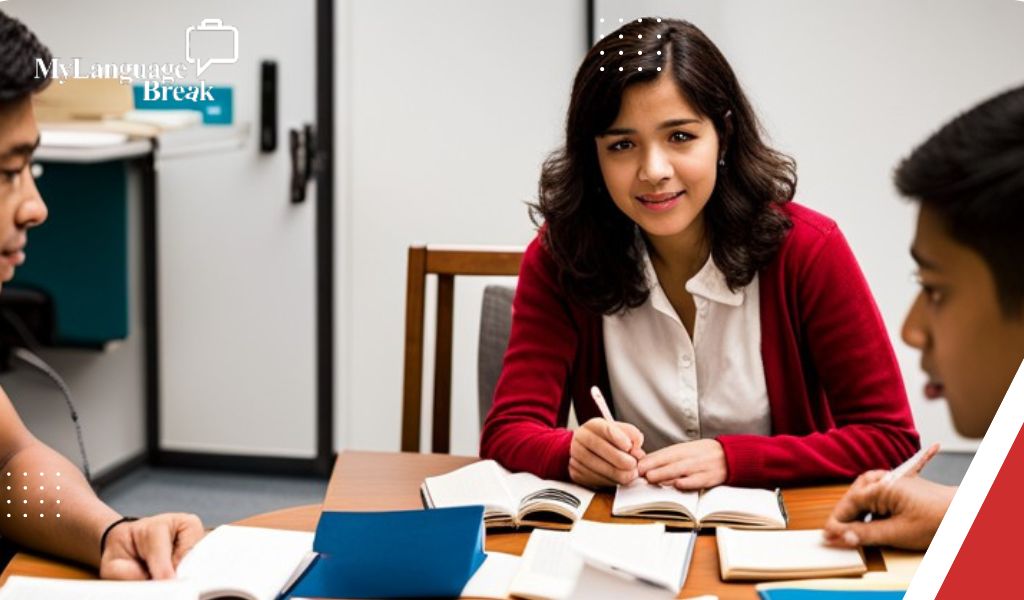Learning a new language can be difficult, but it is definitely worth the effort. Spanish is one of the most popular languages in the world, and becoming fluent in it can open up many opportunities for you. How Long Does It Take to Be Fluent in Spanish? Many individuals don’t speak more than one language for a reason. How long does it take to become fluent in Spanish as an English speaker?
Start by learning the basics – vocabulary, grammar, and pronunciation
When it comes to learning a new language, it’s important to start with the basics. That means learning vocabulary, grammar, and pronunciation.

These are the building blocks that will help you communicate in your new language. And once you have a solid foundation in the basics, you can start to branch out and learn more advanced concepts. But don’t get discouraged if it takes a little time to get the hang of things.
Just keep practicing, and soon you’ll be speaking like a native!
Practice, practice, practice! Speak with native speakers as often as possible.
When it comes to learning a new language, there is no substitute for practice. The more you use a language, the more confident you will feel and the better you will become at using it.
This is especially true for speaking. When you speak with native speakers, you will be exposed to different accents and dialects, as well as new vocabulary and idiomatic expressions.
In addition, speaking with native speakers can help you to develop a better understanding of the culture associated with the language.
For all these reasons, it is important to find opportunities to practice your Spanish as often as possible. Whether you join a language meetup group or take a trip to a Spanish-speaking country, making an effort to speak with native speakers will help you to improve your fluency and confidence.
Choose a Spanish course that is right for you
When it comes to choosing a Spanish course, there are many different factors to consider. First, you need to decide whether you want to learn Spanish for personal or professional purposes.
If you’re interested in learning Spanish for work or academic reasons, then you’ll need to choose a course that covers the specific vocabulary and grammar points that are relevant to your field.
On the other hand, if you’re primarily interested in becoming conversational in Spanish for personal travel or cultural reasons, then you might want to consider a less intense course that focuses on everyday conversation.
Additionally, you’ll need to decide how much time you’re willing to commit to studying each week. Some courses are designed to be completed in as little as 2 weeks, while others might take longer.
Finally, you’ll need to choose between classroom-based instruction and online learning.
Classroom-based courses offer the benefit of face-to-face interaction with a native speaker, but they can be more expensive and time-consuming.
Online courses are typically more flexible and affordable, but they require a high degree of self-motivation. Ultimately, the right Spanish course for you will depend on your individual needs and goals.

Dedicate time each day to studying Spanish
Learning a new language can be a daunting task, but it is also incredibly rewarding. For anyone looking to learn Spanish, one of the most important things to do is to dedicate time each day to studying.
This doesn’t necessarily mean sitting down with a textbook for hours on end; rather, it means finding small ways to incorporate Spanish into your daily routine.
Try listening to a Spanish podcast while you commute to work, or reading a few pages of a Spanish book before bed.
If you can find even just 15 minutes each day to dedicated to Spanish, you’ll be surprised at how quickly your skills begin to improve. Dedicating time each day to studying Spanish may seem like a daunting task at first, but it is essential for anyone who wants to become fluent in the language.
So find a way to fit it into your schedule, and watch your skills begin to improve in no time.
Use resources like flashcards and audio lessons to improve your vocabulary
One of the most important skills for any language learner is to build up a strong vocabulary. There are many different ways to do this, but two of the most effective are using flashcards and listening to audio lessons.
Flashcards are a great way to memorize new words, and they can be used anywhere, at any time. You can make your own cards, or use one of the many online apps that allow you to create virtual decks.
Audio lessons, on the other hand, provide an opportunity to hear native speakers using the language in a natural way.
While it can be tough to find high-quality audio lessons for free, there are many websites and podcasts that offer free episodes on a variety of topics.
By using these resources on a regular basis, you can quickly expand your vocabulary and become more confident in your ability to communicate in the language.
Make use of resources like movies, music, books, and newspapers to improve your language skills
If you’re serious about improving your language skills, it’s important to make use of all the resources at your disposal. While studying from a textbook is certainly helpful, it’s also important to immerse yourself in the language as much as possible.
Watching movies, listening to music, and reading books and newspapers are all great ways to familiarize yourself with the sound and cadence of the language.
Not only will this help you to develop a better ear for the language, but it will also allow you to pick up on new vocabulary.
In addition, seeing the language used in a variety of different contexts will help you to better understand how it is used in everyday life. So make sure to take advantage of all the resources available to you if you’re serious about improving your language skills.
Make use of online tools and apps to reinforce your learning
In the age of technology, there are many online tools and apps that can help you to reinforce your language learning. For example, you can use a translation app to check the meanings of words and phrases, or an audio app to listen to native speakers and improve your pronunciation.
You can also find grammar apps and quizzes to test your knowledge and identify areas that need improvement. With so many resources at your disposal, there is no excuse not to make use of them in order to achieve your language learning goals.
By taking advantage of these tools, you will be able to progress more quickly and effectively, and ultimately become proficient in the language of your choice.
Practice speaking Spanish with native speakers whenever possible
If you’re looking to improve your Spanish skills, the best thing you can do is practice speaking with native speakers. When you’re immersed in the language, you’ll start picking up on things that you wouldn’t otherwise notice.
You’ll start to hear the different rhythms and cadences of the language and be able to replicate them yourself.
You’ll also become more familiar with common phrases and idioms, which will come in handy in day-to-day conversation.
And of course, the more you practice, the more confident you’ll become in your abilities. So if you have the opportunity to speak with native speakers, take it! It’s the best way to improve your language skills.

Use immersion techniques
When it comes to learning a new language, immersion is often considered the gold standard. By immersing yourself in the language – through reading, writing, listening and speaking – you can more quickly develop a strong proficiency. And while there are many different ways to immerse yourself in a new language, one of the most effective is to live in a Spanish-speaking country.
This not only gives you ample opportunity to practice your language skills, but also exposes you to the culture and customs of the country.
Of course, living in a foreign country can be daunting, but there are many programs and organizations that can help make the transition easier.
Whether you’re looking to study abroad for a semester or become a full-fledged expat, there’s no better way to learn Spanish than by immersing yourself in the culture.
Don’t be afraid to make mistakes
If you’re like most people, you probably learned some Spanish in school but never felt confident enough to use it in real life. One reason for this is that we’re often afraid of making mistakes when speaking a foreign language.
Making mistakes is actually one of the best ways to learn. Every time you make a mistake, you have an opportunity to correct yourself and remember the correct way to say something.
Furthermore, making mistakes can be a great way to start a conversation with a native speaker. They may be happy to help you learn and may even enjoy seeing you make progress. So don’t be afraid to make mistakes when learning Spanish—it’s the best way to become fluent!
Final Thoughts
Although it is possible to become fluent in Spanish in less than one year, you will need to make a commitment to learning and practicing the language regularly.
Use the tools and resources we’ve provided to get started on your journey to fluency.
And don’t forget – practice, practice, practice!
The more you use Spanish in conversation, reading, and writing, the better you will become at using the language.
Are you ready to start learning? ¡Vamos!
Comments